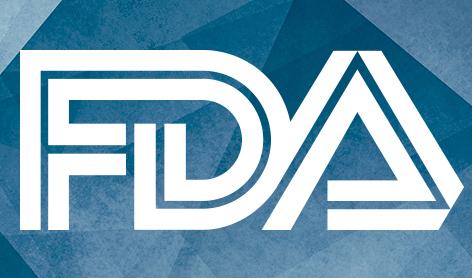Article
FDA Approves Empagliflozin for Treatment in Adults with Heart Failure
Author(s):
Announced on Feb. 24, the approval indicates the SGLT2 inhibitor for reducing risk of CV death and hospitalizations for heart failure in adults with heart failure and is supported by data from the EMPEROR-Preserved trial.

The US Food and Drug Administration has announced the approval of empagliflozin (Jardiance) to reduce the risk of cardiovascular death and hospitalization for heart failure in adult patients.
With previous approvals for reducing risk of cardiovascular death in type 2 diabetes and reducing risk of death and hospitalization in HFrEF, the latest approval, which was announced in a press release from the FDA on February 24, is based on the results of the landmark EMPEROR-Preserved trial.
“Today’s approval will provide a treatment option for a wider range of patients with heart failure,” said Norman Stockbridge, MD, PhD, Director of the Division of Cardiology and Nephrology in the FDA’s Center for Drug Evaluation and Research, in the aforementioned release. “While Jardiance may not be effective in all patients with heart failure, this approval is a significant step forward for patients and our understanding of heart failure. Coinciding with February’s annual observance of American Heart Month—a reminder for individuals to focus on cardiovascular health—this action will provide physicians another tool to address heart disease.”
Although originally approved by the FDA in 2014 as an adjunct to diet and exercise for improving glucose control in adults with type 2 diabetes, empagliflozin, and the SGLT2 inhibitor class as a whole, has captured the spotlight of cardiometabolic health in recent years. Since 2014, empagliflozin has also received approval for reducing risk of cardiovascular death in type 2 diabetes and existing cardiovascular disease and reducing risk of death and hospitalization in patients with heart failure with reduced ejection fraction.
Continuing with the momentum created from the EMPEROR-Reduced trial, the EMPEROR-Preserved trial was lauded as ground-breaking when it was debuted at the European Society of Cardiology 2021 Congress. Used in support of the current approval, the trial compared use of empagliflozin as an adjunct to standard care in a randomized, double-blind fashion to placebo therapy in a population of 5988 adult patients with heart failure.
With 2997 patients receiving 10 mg of empagliflozin once-daily and 2991 receiving placebo, results of the trial demonstrated use of empagliflozin was associated with a statistically significant 21% reduction in the study’s primary endpoint, which was a composite of heart failure hospitalizations and cardiovascular death. Overall, about 14% of patients receiving empagliflozin died from cardiovascular causes or were hospitalized for heart failure compared to 17% of the participants who received the placebo. Results of the trial drew both acclaim and criticism upon release, with some cardiologists calling attention to the lack of effect on cardiovascular death, which was only reduced 9% compared to the 27% reduction in risk of heart failure hospitalization.
In the release from the FDA, the administration noted the adverse event profile associated with empagliflozin for patients with heart failure was generally consistent with that for patients with diabetes. The release also noted empagliflozin is not intended to be used in patients who previously have had a serious allergic reaction to it or are on dialysis.
“Heart failure represents a significant, growing disease burden in the US, with more than 8 million cases expected by 2030. With today’s approval of a breakthrough treatment option for a widely underserved group of people who have heart failure, we take a step closer toward our goal of transforming how we treat this debilitating disease," said Mohamed Eid, MD, MPH, MHA, Vice President, Clinical Development and Medical Affairs, Cardio-Metabolism & Respiratory Medicine, with Boehringer Ingelheim Pharmaceuticals, Inc, in a statement provided to Practical Cardiology. "This is yet another leap forward in our continued journey to advance treatments for adults with cardio-renal-metabolic conditions.”
This is a breaking news story and will be updated as more information becomes available.




